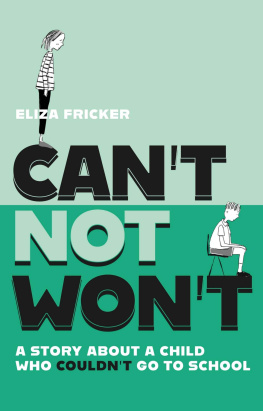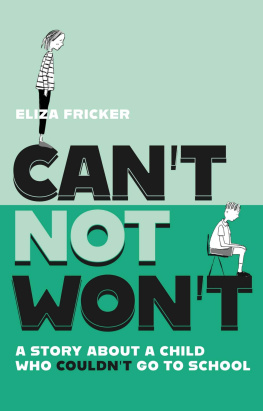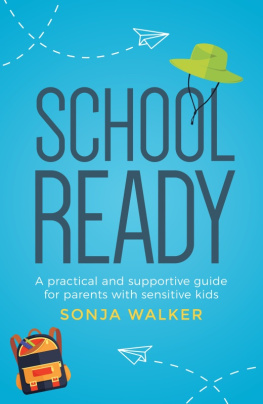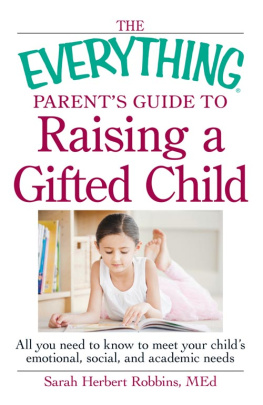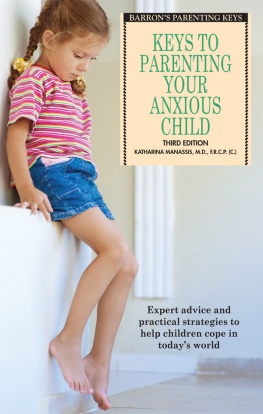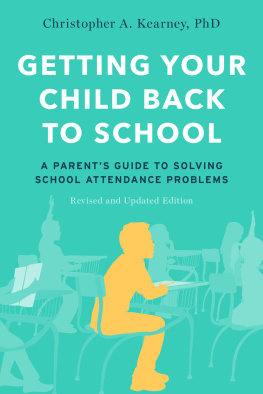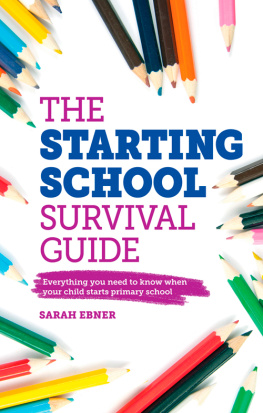by the same author
The Family Experience of PDA
An Illustrated Guide to Pathological Demand Avoidance
Eliza Fricker
Illustrated by Eliza Fricker
Foreword by Ruth Fidler
ISBN 978 1 78775 677 9
eISBN 978 1 78775 678 6
of related interest
Im Not Upside Down, Im Downside Up
Not a Boring Book About PDA
Harry Thompson and Danielle Jata-Hall
Illustrated by Mollie Sherwin
ISBN 978 1 83997 117 4
eISBN 978 1 83997 118 1
The Teachers Introduction to Pathological Demand Avoidance
Essential Strategies for the Classroom
Clare Truman
ISBN 978 1 78775 487 4
eISBN 978 1 78775 488 1
Helping Your Child with PDA Live a Happier Life
Alice Running
ISBN 978 1 78775 485 0
eISBN 978 1 78775 486 7
Cant
Not
Wont
A Story About A Child Who
Couldnt Go To School
Written and illustrated by
Eliza Fricker
Guidance and Thoughts for Schools and Professionals by Sue Moon
Reflections for Schools and Professionals by Tom Vodden

First published in Great Britain in 2023 by Jessica Kingsley Publishers
An imprint of Hodder & Stoughton Ltd
An Hachette Company
Copyright Eliza Fricker 2023
The right of Eliza Fricker to be identified as the Author of the Work has been asserted by her in accordance with the Copyright, Designs and Patents Act 1988.
Guidance and Thoughts for Schools and Professionals Sue Moon 2023
Reflections for Schools and Professionals Tom Vodden 2023
Front cover image source: Eliza Fricker.
All rights reserved. No part of this publication may be reproduced, stored in a retrieval system, or transmitted, in any form or by any means without the prior written permission of the publisher, nor be otherwise circulated in any form of binding or cover other than that in which it is published and without a similar condition being imposed on the subsequent purchaser.
A CIP catalogue record for this title is available from the British Library and the Library of Congress
ISBN 978 1 83997 520 2
eISBN 978 1 83997 521 9
Jessica Kingsley Publishers policy is to use papers that are natural, renewable and recyclable products and made from wood grown in sustainable forests. The logging and manufacturing processes are expected to conform to the environmental regulations of the country of origin.
Jessica Kingsley Publishers
Carmelite House
50 Victoria Embankment
London EC4Y 0DZ
www.jkp.com
To B, you make my heart swell with pride.
Acknowledgements
Thank you, Nonna, for your continually excellent and succinct summaries of often totally deranged scenarios and for listening when all I could do was cry.
To Dad for all those fun times we had mucking about at home growing up. These memories really helped me to keep pulling it out of the bag.
To my editor Lynda and everyone at JKP for your support.
To all my friends old and new who have been there.
I want to dedicate this book to all the families and children whom I have met, and will continue to meet, whose children try so very hard until they cant do it any more.
This is all our story.
This is for all of you.
Introduction
I started writing and drawing our experiences when my daughter was at home full time, unable to attend school. It began as a way for me to process our experiences of the previous eight years with the school system, something I couldnt have done at the time because most of those days were spent navigating and predicting hurdles and potential pitfalls; managing the distress and fallout of each school day would often take us beyond what would be deemed a respectable bedtime and that was before we started on meetings, emails, courses.
Drawing and writing while in slippers at home all day gave me more than just time to heal and process, it connected me with a whole community of families just like ours, whose children struggle with school every day. This was incredibly helpful because actually, when we were going through it all, we felt like we were the only people in the same boat. We were that family with an enigma of a child, and I think I carried this with me for many years. Oh well, how can they help us? We are such an unusual case.
In a way, this slightly fatalistic narrative was oddly comforting. When professionals were unable to help, I thought that they had never seen such a situation arise before because, after all, what child doesnt want to go to school? But now I know differently. There are so many of us who are still trying to get their children to attend every day, or who are quietly and shamefully dealing with the fallout from the impact of the school day at home. There are many more who (like us now) are finding that after years of our child struggling to attend school, and worrying we would be in trouble when they stopped, there were very few phone calls, emails or home visits when it actually happened. I learnt very quickly that when your child isnt in school it will go quiet on the communication front.
I also learnt, once we were home and without the daily pressures and distress, that I had been putting on a brave face at those school gates and that doing that for many years had taken its toll on my mental health.
I know now I was quite unwell, hiding this from most friends and other parents because, I mean, where do you start? And frankly, who wants to hear a story that rambles on across eight years, covering bureaucratic nightmares that even you cant keep track of?
Because these are systems that are not only utterly baffling and maddening, they are truly boring. I still cant read our Education, Health and Care Plan (EHCP) as it is written in language that is neither engaging nor reflective of my child.
I learnt that while most teachers and professionals we met were well-meaning, they were trapped by the same systems as we were. I wish they could have given us options, though. As well as more honesty, and more consistency of communication and relationships. That would have been better than departments and people you saw once and then never again.
And I really wish they hadnt given us so much positive spin, because this not only invalidated the reality of the misery we were in, it wasnt helpful when it came to preparing us for the future.
I wish Id ducked out of the coffee mornings and parent classes because I lost so much time and learnt nothing about the autistic experience, masking or monotropism. This would have been knowledge, this would have been empowering for my family, but instead the focus was always on managing behaviour. But I felt I couldnt skip these sessions or Id be seen as a bad parent and you do everything in your might not to be perceived as that when your childs attendance is below 90 per cent.
This is actually why I took up vacuuming during this time: because I didnt want people to think I was a failure (on a plus side, the house had never been tidier).
However, I did figure out that when I shouted, begged, cajoled and cried, I wasnt really listening to my daughter, I was listening to others instead because I was worried and scared of what they might think of me, of all of us, because all children have to go school.
This is the hard bit. I learnt that when our children struggle, we risk breaking their trust. We watch their distress, listen to them late into the night and then the next day we make them go back to that place all over again. Back to school.
I know my story isnt the worst. I have heard what other families and children have gone through, experiences that are truly, truly dreadful, and no family should have to go through such upset.
Next page
